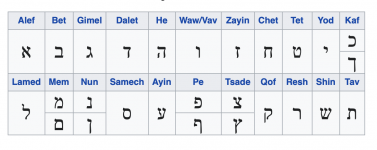Origen
Well-known member
- Joined
- Jan 1, 2021
- Messages
- 827
- Gender
- Male
- Religious Affiliation
- Christian
- Acceptance of the Trinity & Nicene Creed
- Yes
It is clear that many people have an interest in which books belong in the O.T. canon. However, I have not seen is anyone post the historical or manuscript evidence.
I will first divided the lists into Greek and Latin sources starting with earliest ones first. The manuscript evidence also be added according to the date of the codex.
Please note the books have been named according to their modern titles.
I. Greek Lists Second Century
Bryennios List - The Bryennios List dates ca. 2nd century A.D.
Genesis
Exodus
Leviticus
Numbers
Deuteronomy
Joshua
Judges
Ruth
1-2 Samuel
1-2 Kings
1-2 Chronicles
Esdras A
Esdras B
Esther
Job
Psalms
Proverbs
Ecclesiastes
Song of Solomon
Isaiah
Jeremiah
Lamentations
Ezekiel
Daniel
12 Minor Prophet
There is some uncertainty as to the books of Esdras A and Esdras B. However it is most likely they are Ezra and Nehemiah respectively.
Melito's List - Melito's list is dated to A.D. 170. This list comes from Eusebius.
Genesis
Exodus
Leviticus
Numbers
Deuteronomy
Joshua
Judges
Ruth
1-2 Samuel
1-2 Kings
1-2 Chronicles
Esdras
Job
Psalms
Proverbs
Wisdom
Ecclesiastes
Song of Solomon
Isaiah
Jeremiah
Ezekiel
Daniel
12 Minor Prophets
(1) The book of Esther is omitted from the list.
(2) The book Nehemiah is not explicitly mentioned but may have been included with Esdras.
(3) The book of Lamentations is not explicitly mentioned but may have been included with Jeremiah.
(4) There is an issues concerning the book(s) of Proverbs and Wisdom. It is a translation issue (i.e. Σολομῶνος Παροιμίαι ἡ καὶ Σοφία). Are there two books, one Proverbs and the another named Wisdom, or just one book Proverbs also called Wisdom. Naturally both positions have been argued.
II. Greek Lists Third Century
Origen's List - Scholars dates Origen's list to ca. A.D. 220-240. This list comes from Eusebius.
Genesis
Exodus
Leviticus
Numbers
Deuteronomy
Joshua
Judges
Ruth
1-2 Samuel
1-2 Kings
1-2 Chronicles
Esdras A
Esdras B
Esther
Job
Psalms
Proverbs
Ecclesiastes
Song of Solomon
Isaiah
Jeremiah
Lamentations
Epistle of Jeremiah
Ezekiel
Daniel
12 Minor Prophets
Maccabees (outside the canon)
(1) There is some uncertainty as to the books of Esdras A and Esdras B. However it is most likely they are Ezra and Nehemiah respectively.
(2) The Epistle of Jeremiah is clearly listed and link to Jeremiah.
(3) In regard to the Maccabees Origen states "And outside of these [i.e. the above books just listed by Origen] there are the Maccabees."
I will supplement the above information tomorrow.
I will first divided the lists into Greek and Latin sources starting with earliest ones first. The manuscript evidence also be added according to the date of the codex.
Please note the books have been named according to their modern titles.
I. Greek Lists Second Century
Bryennios List - The Bryennios List dates ca. 2nd century A.D.
Genesis
Exodus
Leviticus
Numbers
Deuteronomy
Joshua
Judges
Ruth
1-2 Samuel
1-2 Kings
1-2 Chronicles
Esdras A
Esdras B
Esther
Job
Psalms
Proverbs
Ecclesiastes
Song of Solomon
Isaiah
Jeremiah
Lamentations
Ezekiel
Daniel
12 Minor Prophet
There is some uncertainty as to the books of Esdras A and Esdras B. However it is most likely they are Ezra and Nehemiah respectively.
Melito's List - Melito's list is dated to A.D. 170. This list comes from Eusebius.
Genesis
Exodus
Leviticus
Numbers
Deuteronomy
Joshua
Judges
Ruth
1-2 Samuel
1-2 Kings
1-2 Chronicles
Esdras
Job
Psalms
Proverbs
Wisdom
Ecclesiastes
Song of Solomon
Isaiah
Jeremiah
Ezekiel
Daniel
12 Minor Prophets
(1) The book of Esther is omitted from the list.
(2) The book Nehemiah is not explicitly mentioned but may have been included with Esdras.
(3) The book of Lamentations is not explicitly mentioned but may have been included with Jeremiah.
(4) There is an issues concerning the book(s) of Proverbs and Wisdom. It is a translation issue (i.e. Σολομῶνος Παροιμίαι ἡ καὶ Σοφία). Are there two books, one Proverbs and the another named Wisdom, or just one book Proverbs also called Wisdom. Naturally both positions have been argued.
II. Greek Lists Third Century
Origen's List - Scholars dates Origen's list to ca. A.D. 220-240. This list comes from Eusebius.
Genesis
Exodus
Leviticus
Numbers
Deuteronomy
Joshua
Judges
Ruth
1-2 Samuel
1-2 Kings
1-2 Chronicles
Esdras A
Esdras B
Esther
Job
Psalms
Proverbs
Ecclesiastes
Song of Solomon
Isaiah
Jeremiah
Lamentations
Epistle of Jeremiah
Ezekiel
Daniel
12 Minor Prophets
Maccabees (outside the canon)
(1) There is some uncertainty as to the books of Esdras A and Esdras B. However it is most likely they are Ezra and Nehemiah respectively.
(2) The Epistle of Jeremiah is clearly listed and link to Jeremiah.
(3) In regard to the Maccabees Origen states "And outside of these [i.e. the above books just listed by Origen] there are the Maccabees."
I will supplement the above information tomorrow.
Last edited by a moderator:


